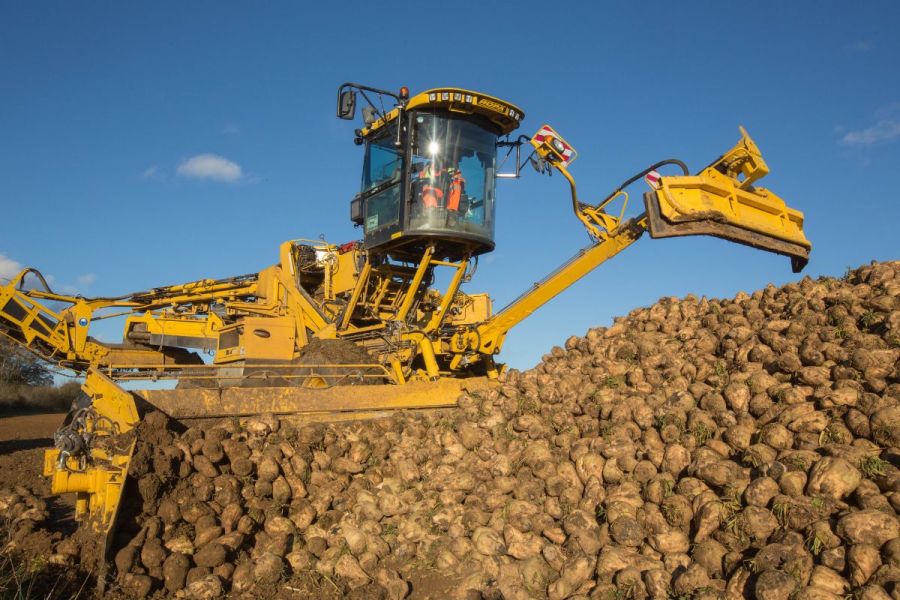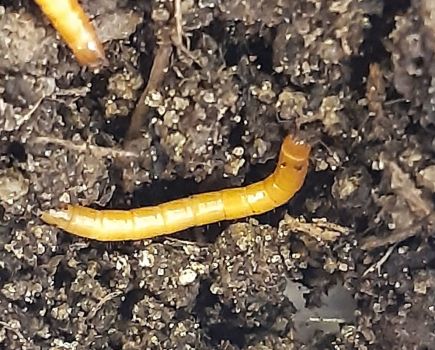British Sugar has started a shake-up of how the sugar beet campaign is run through a new project – the Field-to-Factory Partnership. CPM learns how the company is seeking to make harvesting and delivery of the crop more efficient and transparent.
“This is a critical time for the sugar beet industry and although we’d like everything right the first time, we’ll have to continuously tweak to get things spot on.”
By Will Charlton
In many ways, the UK sugar beet industry is a success story to be celebrated. Whereas other crops have plateaued, sugar beet yields have increased by an average of 2% per year for the past 30 years.
British Sugar is also one of the most efficient processors in the world, using 99% of the crop it processes through co-products such as Trident animal feeds, LimeX and Topsoil.
As growers will be acutely aware, the sugar beet campaign is the period from September to March when the crop is harvested and delivered. It can be stressful for several reasons, not least the weather and the unique extendable nature of the campaign. Plus, the weather this winter has underlined some of the challenges facing the industry.
To confront these difficulties, British Sugar established the Field-to-Factory Partnership in February 2022 with the objective of making the sugar beet campaign work for everyone.
The project team spent the first year canvassing the industry for their views through focus groups, surveys and interviews – it was the biggest consultation exercise ever held by British Sugar and took in perspectives from growers, hauliers and other stakeholders.
This winter’s campaign marks the beginning of the Partnership’s plan to improve some of the issues the research identified. “The first thing we did was to engage with sugar beet growers, hauliers and harvesting contractors,” says Nick Morris, head of agriculture – supply chain at British Sugar. “This crystalised the areas our partners would most like to improve.
“Some of the most common issues are harvesting crops at the right time, communication between growers and hauliers about when their crop will be delivered, delays in collection, and opportunities for further yield increases through improved harvesting.
“Combined with British Sugar’s objective of maintaining a continuous and efficient beet supply into its four factories throughout the campaign, these are all the things the Field to Factory Partnership is now designed to solve.”
The project is divided into five initiatives, of which, the firm believes adaptable campaign planning has the potential to be the most revolutionary. It aims to devise a running order for the campaign by haulage group, considering the grower’s preferences for harvest date by field and optimising the route to deliver maximum efficiency for the haulage and harvesting contractors.
Bulk logistics optimisation examines how to utilise the available lorry capacity most efficiently by maximising the opportunity for backloads of co-products from the factory to farmers.
By helping harvester operators improve their skills and encouraging an open dialogue between the contractor and farmer, the team hopes to steadily improve crop recovery from harvesting. This is crucial to improving sugar beet yields further.
Finally, British Sugar plans to improve its crop yield forecasting and communications. By doing this, they hope to give growers access to more information about the campaign’s progress so they can make more timely, better-informed decisions for their farms.
Nick says before they began, they examined the other sugar businesses that parent company ABF Sugar owns globally, as well as evaluating competitors in Europe to see if there’s anything that could be adopted.
“Azucarera, our sister company in Spain, has recently adopted their version of an adaptable campaign plan for growers in northern Spain. We’ve seen the logic they used to calculate the running order of fields, although their aims for their plan are different to ours,” explains Nick.
“On the continent, most of the processors are farmer cooperatives. They have absolute control over the harvesting and haulage of the crops destined for their factories. Everything is well structured, but growers don’t have a say in when their crops are delivered.
“We run a different system in the UK and growers must maintain control of their business decisions. That’s why our adaptable campaign plan pilot, that’s running this campaign, started by asking the growers for their intended following crop and ideal harvest date for all of their sugar beet fields.”
Since the sugar regime reform of the mid-2000s, sugar beet has benefitted from an increasingly professional pool of growers and contractors. Nottinghamshire farmer and contractor Ed Plowright of JP Plowright & Son is typical of this change and has seen his sugar beet business grow over time.
Ed grows more than 30,000t of sugar beet for British Sugar’s Newark factory. In addition to his crop, he contract harvests another 2000ha for growers across Nottinghamshire, Lincolnshire and Rutland. To do this, Ed runs nine-row and six-row Vervaet harvesters alongside two Vervaet self-propelled chasers.
“One of my biggest issues with the sugar beet campaign in the past has been that haulage groups heavily influence us as to the order of the fields we harvest,” says Ed. “This can mean a lot of road miles and makes our operation very inefficient.
“Because of this current system, I’m also not always a fan of just-in-time harvesting. If the weather changes, it can put a lot of pressure on us to harvest when conditions are not ideal. Otherwise, hauliers and the factory will be short of beet.
“In the past few years, we’ve had to increase our harvesting price considerably. We’ve had no choice – the cost of spares, diesel, labour and machinery have all increased. The machinery financing cost has recently gone through the roof. If we can make our operation more efficient, it’ll help to counter some of these increases,” he says.
Having communicated these concerns to his British Sugar account manager, Ed was asked if he would try a pilot version of the adaptable campaign plan for his harvesting customers. The farmers have submitted their preferred harvest date and the following crop for each sugar beet field as a starting point. The program calculating the adaptable campaign plan has given him a running order which maximises efficiency for his operation whilst being as close as possible to his customers’ expectations.
“I’ve been harvesting most of my customers’ fields long enough to know roughly when they’ll need them harvested. This season’s weather makes any plan difficult. At the moment, I’m going anywhere the conditions allow.
“In this situation, the adaptable campaign plan will be challenged, but you have to give these things a go and get behind them 100%. It’ll be a lot easier in a more typical season,” adds Ed.
However, he’s optimistic about more in-season harvester evaluations and opportunities for training from the harvester manufacturers. He operates one of his machines, and the other has another experienced driver, but he believes there are always chances to learn.
“The harvester testing is helpful, especially when I’m told the maximum potential root yield of the field I’m in at the time. It gets me thinking about what I can do to push the harvested yield as close as possible to that number,” explains Ed.
Someone who sees the other side of the campaign to Ed is Norfolk haulier and grower Jonny Wyatt of Pearn Wyatt & Son. Across the campaign, they deliver 450,000t into the Bury St Edmunds Wissington and Cantley factories, loading them with a conventional cleaner and loading shovel alongside a self-propelled (Maus) machine.
“My biggest frustration is the link between the farmer, harvesting contractor, and the haulier,” says Jonny. “There can be a lack of understanding of the haulage process and its associated risks. We just visited one customer where the loading site was under power lines; we had to make them move it before it was safe for us to transport.
“There was another recent example where the hedges weren’t cut. The beet had to go through our Maus twice before getting a lorry close enough to load; all of these things lead to inefficiencies. The harvesting and the haulage have to be brought together to make everyone’s life better and more efficient.
“Despite this, sugar beet works well for our business. The factories are open 12 hours to take in beet, and our output is good as a result.”
The pressure on hauliers is most acute in October and November as farmers push to harvest their sugar beet in time to sow winter wheat in the optimal window. In a typical year, British Sugar estimates that 60% of sugar beet is followed by winter wheat in the rotation.
Jonny says he can struggle to maintain the haulier-farmer relationship when conditions are perfect for harvesting and drilling a following crop. He believes more pre-season conversations can help, although most farmers are busy with harvest in the months preceding the sugar beet campaign, and he has other businesses to run.
The adaptable campaign plan could be the ideal tool to alleviate this pressure and increase coordination between Jonny’s haulage operation and the local contractors harvesting his customers’ beet. However, like Ed, Jonny thinks the weather conditions of this current campaign would challenge any plan.
“In principle, it’s the ideal solution, but it’ll have to be able to deal with the disruption caused by bad weather. We find joining up A to B when conditions are unfavourable a real problem. I’ve just had a long road journey in my Maus to load fewer tonnes than I’d like because I’m chasing around to find some sugar beet that’s been lifted.
“The two words I use for sugar beet are continuity and conversation; it’s a massive part of how I run my business. I want to understand my customers from a haulier’s point of view and for them to understand me. It makes life a lot easier for everyone,” says Jonny.
“You require continuity to know all of the intricate parts of the job, like the gate codes or when the farm might be shooting. I also believe that the more you talk to each other, the easier life becomes. Keeping in conversation helps to develop our understanding and the relationship for the future,” he adds.
Everything that goes well with the sugar beet campaign is more often than not a result of solid relationships between the British Sugar team, growers, harvesting contractors and hauliers than a system or process, agrees Nick. Rather than disrupt this, he intends the Field-to-Factory Partnership to create tools that they can use to build on those relationships.
“None of what we’re trying to do is easy,” says Nick. “If it were, it would have been done decades ago. This is a critical time for the sugar beet industry, and although we’d like to get everything right the first time, I know we’ll have to continuously tweak and change to get things spot on. But by working collaboratively and continuing to listen, we should be able to accomplish what we want to do.”
Nick would like to see the five initiatives that comprise the Field-to-Factory Partnership completed and their opportunities realised within three to five years.
“The outcome will be determined by how successful each initiative is. If growers, hauliers and harvesters don’t feel it improves on what we already do, then we’ll not continue the initiative. However, the shared ambition of continuous improvement to deliver cost and supply chain efficiency and increased satisfaction with the campaign should endure,” concludes Nick.
Anyone wishing to be involved with the Field-to-Factory Partnership can contact British Sugar via their account manager who will provide further information.
This article was taken from the latest issue of CPM. For more articles like this, subscribe here.
Sign up for Crop Production Magazine’s FREE e-newsletter here.




